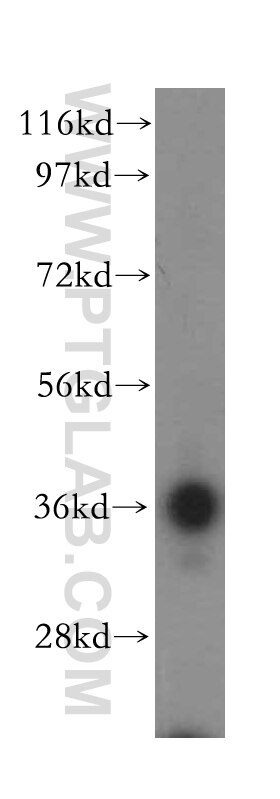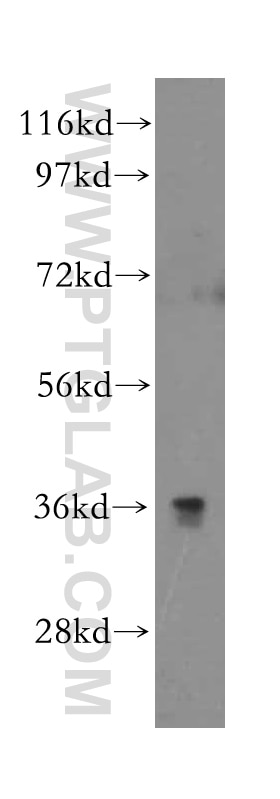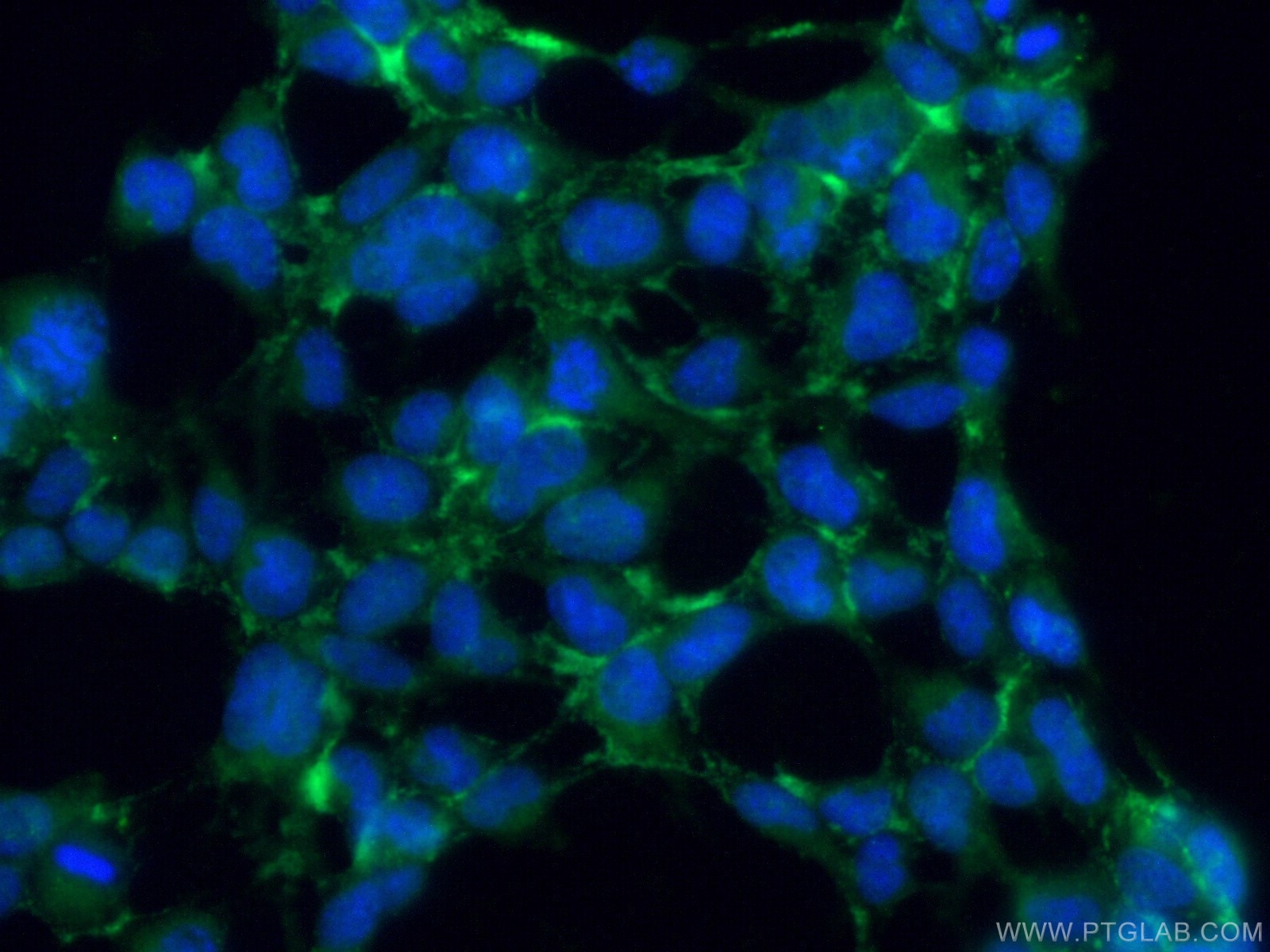Validation Data Gallery
Tested Applications
| Positive WB detected in | human kidney tissue, HepG2 cells |
| Positive IF/ICC detected in | HEK-293 cells |
Recommended dilution
| Application | Dilution |
|---|---|
| Western Blot (WB) | WB : 1:500-1:2000 |
| Immunofluorescence (IF)/ICC | IF/ICC : 1:50-1:500 |
| It is recommended that this reagent should be titrated in each testing system to obtain optimal results. | |
| Sample-dependent, Check data in validation data gallery. | |
Product Information
15426-1-AP targets CD300LG in WB, IF/ICC, ELISA applications and shows reactivity with human samples.
| Tested Reactivity | human |
| Host / Isotype | Rabbit / IgG |
| Class | Polyclonal |
| Type | Antibody |
| Immunogen | CD300LG fusion protein Ag8075 相同性解析による交差性が予測される生物種 |
| Full Name | CD300 molecule-like family member g |
| Calculated molecular weight | 36 kDa |
| Observed molecular weight | 36 kDa |
| GenBank accession number | BC025395 |
| Gene Symbol | CD300LG |
| Gene ID (NCBI) | 146894 |
| RRID | AB_2074217 |
| Conjugate | Unconjugated |
| Form | Liquid |
| Purification Method | Antigen affinity purification |
| UNIPROT ID | Q6UXG3 |
| Storage Buffer | PBS with 0.02% sodium azide and 50% glycerol , pH 7.3 |
| Storage Conditions | Store at -20°C. Stable for one year after shipment. Aliquoting is unnecessary for -20oC storage. |
Background Information
CD300LG, also known as CLM9 (CMRF35-like molecule 9), is a member of the CD300 protein family. Members of this family are cell surface glycoproteins with a single IgV-like extracellular domain, and are involved in the regulation of immune response. CD300LG is a receptor which may mediate L-selectin-dependent lymphocyte rollings and may play an important role in inflammation.
Protocols
| Product Specific Protocols | |
|---|---|
| WB protocol for CD300LG antibody 15426-1-AP | Download protocol |
| IF protocol for CD300LG antibody 15426-1-AP | Download protocol |
| Standard Protocols | |
|---|---|
| Click here to view our Standard Protocols |


